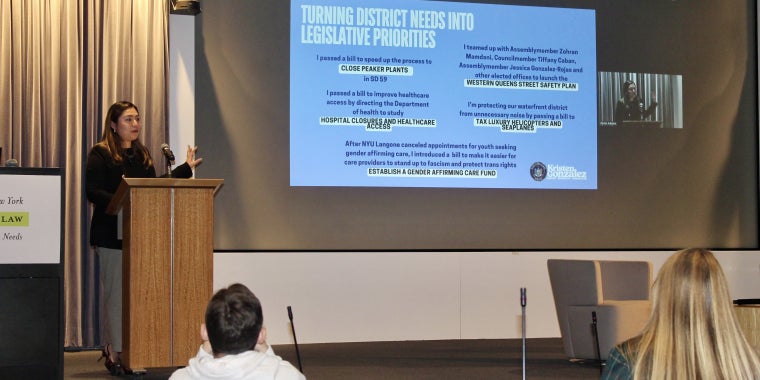
Senator Kristen Gonzalez and 50+ New York State Legislators Sign Letter Opposing the House Republicans’ Proposed Moratorium on State and Local AI Legislation
May 16, 2025
-
ISSUE:
- Artificial intelligence; AI
ALBANY, NY – On May 15th, 2025, Chair of the New York State Senate’s Internet and Technology Committee Senator Kristen Gonzalez sent a letter to U.S. Speaker of the House Mike Johnson opposing a 10-year moratorium on state and local AI legislation passed by the Energy and Commerce committee. The letter, signed by 55 State Senators and Assemblymembers, asks the Speaker to remove a provision from the house reconciliation text that would prevent state and local governments from passing any AI related legislation unless that legislation removes legal impediments to or helps to streamline AI development.
Despite Federal inaction on AI regulation, states are leading the way, with over 550 bills enacted or currently being considered in state legislatures across the country. New York leads the way with 60+ bills, and with the passage of a government use of AI bill in 2024 (S.7543), has become a model for state governments seeking to place guardrails on public sector AI use.
“As Chair of the Senate’s Internet & Technology Committee, I’ve helped lead New York’s fight for the safe and responsible adoption of AI technology.” Senator Gonzalez said. “This moratorium, if passed, would undermine the work of state legislatures at a time when big tech’s influence has never been greater, and when companies are placing profit motives ahead of the need to protect people’s privacy, autonomy, and livelihoods. With 50+ New York legislators, I’m standing up against this federal overreach, and acknowledging the need to address AI technology now, before it's too late.”
The reconciliation text passed the Energy and Commerce committee despite Democrats attempts to remove the provision, and is expected to be considered by the budget committee on Friday May 16th. If the provision successfully passes the House of Representatives, it will still face a tough path to inclusion in the final budget where the Byrd rule prohibits policy unrelated to the budget from being considered during the reconciliation process.

